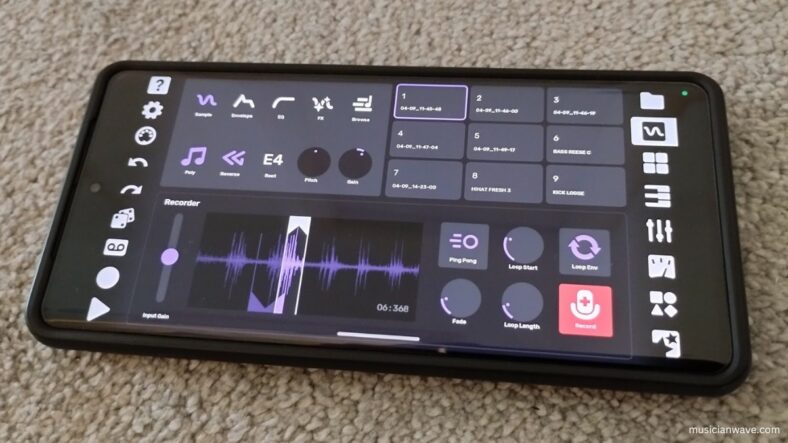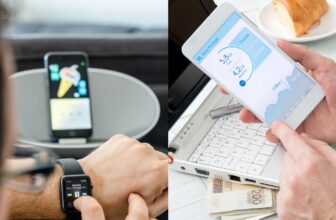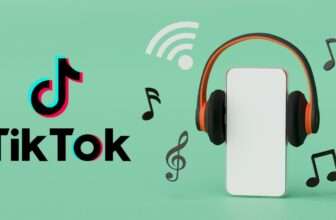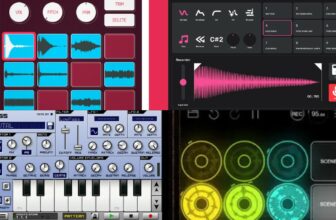Phone Latency in Music-Making Apps (Causes and Solutions)

Phone latency in music-making apps is most commonly caused by Bluetooth- and performance-related issues. While it’s not possible to get rid of phone latency completely (there’s always some latency), you can reduce it by, for example, updating Bluetooth devices or solving incompatibility issues.
- If you’re using Bluetooth headphones for your phone, most of the audio latency is likely due to the delay caused by your Bluetooth connection. To solve the issue, restart, update, and check the battery of your Bluetooth devices
- It is reported that Android audio latency is up to four times higher than iOS devices. Results can vary significantly due to the wide range of handsets. The study was in 2018 so may not account for newer phones and OS versions.
- Power-saving mode reduces performance in Android and iOS devices. Turn it off in case you’re experiencing phone latency
- Some music-making apps use their own separate drivers, which are sometimes not as good as your phone’s original audio drivers—check the settings to start using the latter
- Check the settings of your music-making app and change the audio buffer size—the lower the buffer, the lower the latency
- Optimize your phone’s performance by clearing the cache, disabling Wi-Fi, or limiting background processes.
Phone latency is the time it takes for a phone to respond to any given action. For example: you experience phone latency when you download a piano app for your Android or iOS device and there’s a noticeable delay between the moment you press a key and the moment you hear the sound that’s being reproduced by that key.
There’s always latency in music-making apps, but it is normally so short (lasting only a few ms) that we don’t even notice it. The real problem starts when phone latency is such that it prevents you from using a music-making app correctly. Luckily, there are ways of identifying the cause of the problem and fixing it, so let’s dive right into it!
Contents
What are the causes of phone latency in music-making apps?
Generally speaking, phone latency in music-making apps is caused by poor performance. That’s why latency problems are more common in older phone models (with less processing power) than in more recent ones. Latency in computers works similarly, and I remember being baffled by how changing from a laptop with 16GB RAM to a laptop with 32GB RAM solved most of my music-making latency issues. Nevertheless, there’s more to phone latency than just processing power.
Phone latency can also be caused by Bluetooth issues; according to a quick online research, this is actually the most common latency-related issue affecting Android and iOS users. Faulty connections are the number-one cause of Bluetooth latency issues. Bluetooth devices can also lag when they’re left connected for a long time.
Some music-making apps come with their own audio drivers, which are different from your phone’s main audio drivers. This can also give way to phone latency issues.
In other cases, music-making apps are optimized for newer phone models and will end up requiring more processing power from your phone than the power it can handle.
How to measure phone latency in music-making apps?
Measuring phone latency in Android and iOS devices requires installing third-party apps that analyze your phone’s audio performance and provide you with an exact number for the latency you’re experiencing. You should be fine with a phone latency of 20ms or less, but musicians should strive for an ideal 10ms or less.
For measuring phone latency on Android, I recommend using the free-source tool Dr. Rick O’Rang. For measuring phone latency on iOS, I recommend downloading the app Round Trip Latency Meter.
Audio Latency in Android vs iOS
Phone latency works differently for Android and iOS devices. A testing on over 200 devices concluded that audio latency in Android is more than four times that of iOS, and that audio glitches are 30 times more prevalent in Android than iOS. This may help to explain why musicians traditionally tend to favor Apple products.
The main cause for the gross difference in audio latency between Android and iOS devices is that Android is an open ecosystem while iOS is a closed ecosystem. This means that, whereas Apple controls both the hardware and software of its devices, Android includes countless hardware and software combinations. This affects Android’s performance negatively.
Apple products rely on high-performance and highly integrated audio frameworks such as Core Audio, and so do Android devices (popular frameworks include OpenSL ES, AudioTrack, and Android Audio API). The problem is that Apple’s closed ecosystem makes it easier for everything to function perfectly. Android, with its multiple hardware and software combinations, gives way to many more compatibility issues.
Finally, iOS works better for audio latency than Android because Apple has a history of releasing products with high-quality real-time processing. Nevertheless, Android devices aren’t necessarily worse than iOS devices—just like with Mac and Windows computers, it’s all about choosing the right settings to optimize audio.
How to solve phone latency in music-making apps?
If you’re using a set of Bluetooth headphones or any other Bluetooth device while making music on your phone, there’s a good chance phone latency’s being caused by Bluetooth-related issues.
You can solve Bluetooth-related issues by:
- Keeping your Bluetooth devices and phone as physically close as possible
- Restarting your Bluetooth devices
- Updating your Bluetooth devices
- Checking the battery of your Bluetooth devices (especially important for headphones)
- Disabling power-saving mode on Android and iOS
If you’re not using any Bluetooth devices while making music on your phone, then phone latency is most likely being caused by performance issues. In other words, your phone’s processing power is just not up to the task… Don’t worry though, as buying a new phone isn’t the only fix for this problem.
You can solve performance-related issues by:
- Checking the settings of your music-making app to see if it’s using its own separate audio drivers—if that’s the case, change back to the phone’s device drivers;
- Checking the specs of your music-making app to look for any incompatibility issues, as some apps simply require more processing power than the power your phone can handle;
- Decreasing the buffer in your music-making app settings.
Buffer size refers to the number of samples it takes for your phone to process incoming audio signals. The lower the buffer, the lower the latency; the higher the buffer, the higher the latency! There’s a trade-off, though, as a lower buffer size will require more processing power than a higher buffer size.
If you want to reduce the buffer size of a music-making app but your phone’s not responding well to it (because it lacks processing power), you should try to clear as much room for your phone’s CPU as possible. This includes, for example:
- Clearing your phone’s cache and data
- Disabling Wi-Fi
- Limiting background processes
- Uninstalling unnecessary apps
- Optimizing app settings by disabling auto-sync and push notifications
If any of these fixes fail to solve latency issues in your phone, you should try to update to a newer, more powerful device, or change to music-making apps that demand less CPU usage. This list of 10 great music-making apps for Android and iOS is a good place to start looking for alternatives. The 9 best free offline music apps are also worth checking out!
Verdict
Music-making apps are still far from replacing full-fledged Windows and Mac DAWs, but they’re slowly becoming better and better. By solving phone latency issues, pro-level and amateur producers/musicians can make the best of their Android and iOS devices and make music anywhere.
Using the most advanced music-making apps with low latency may require some processing power, but—with some ingenuity—you can actually end up making a number-one hit in an old phone model with FL Studio Mobile or Bandlab.





